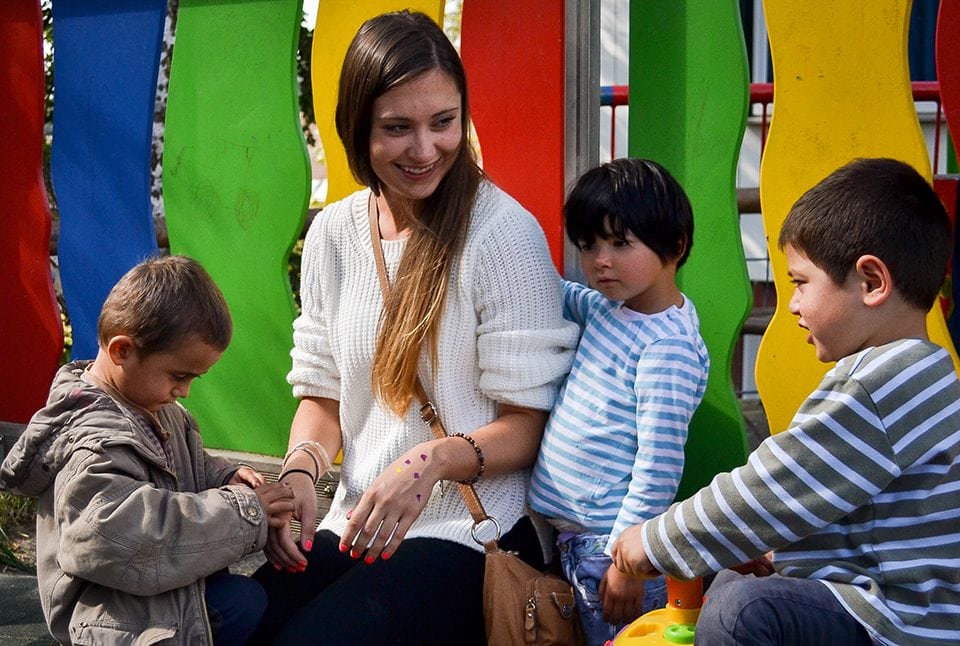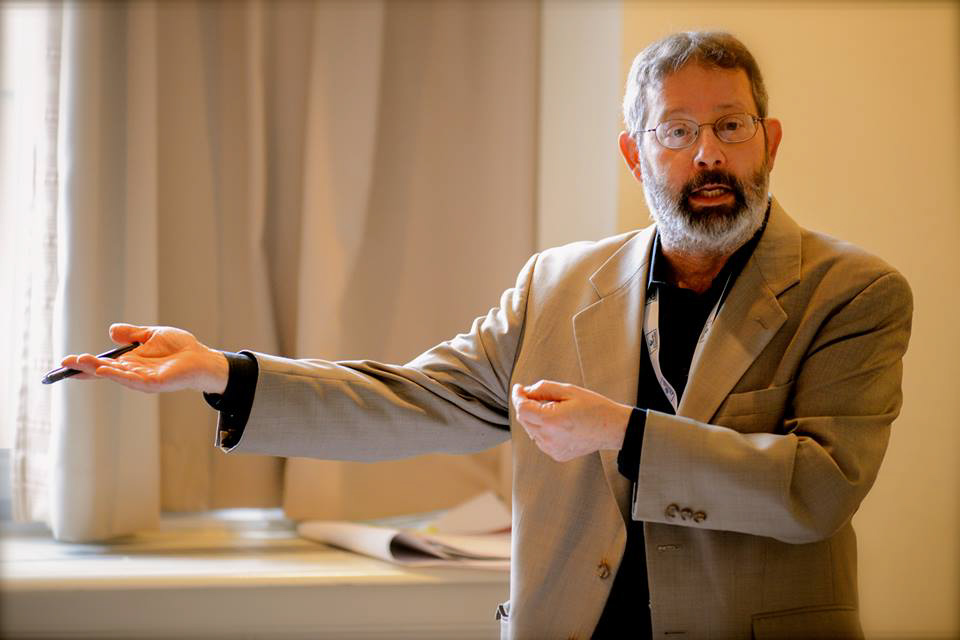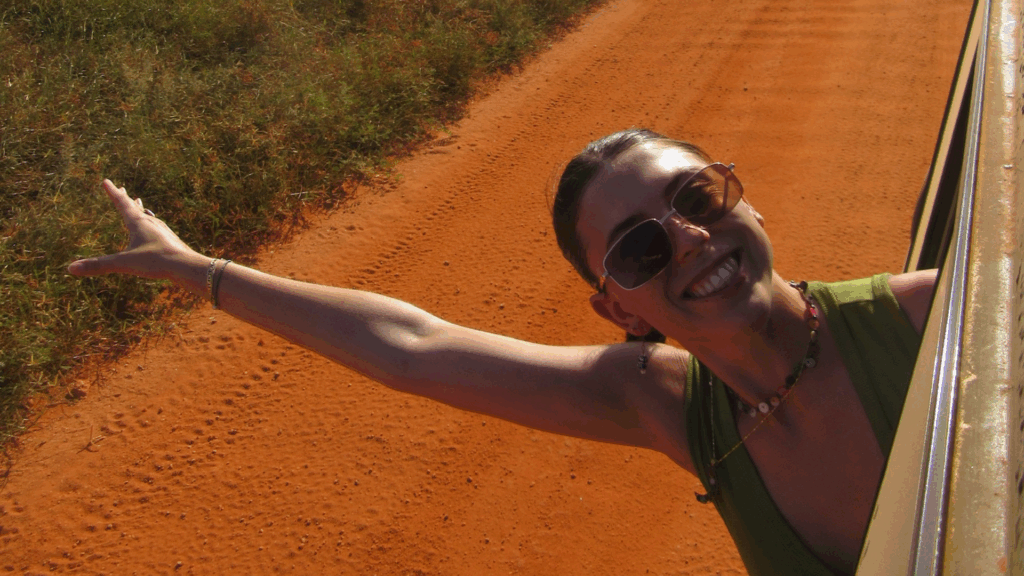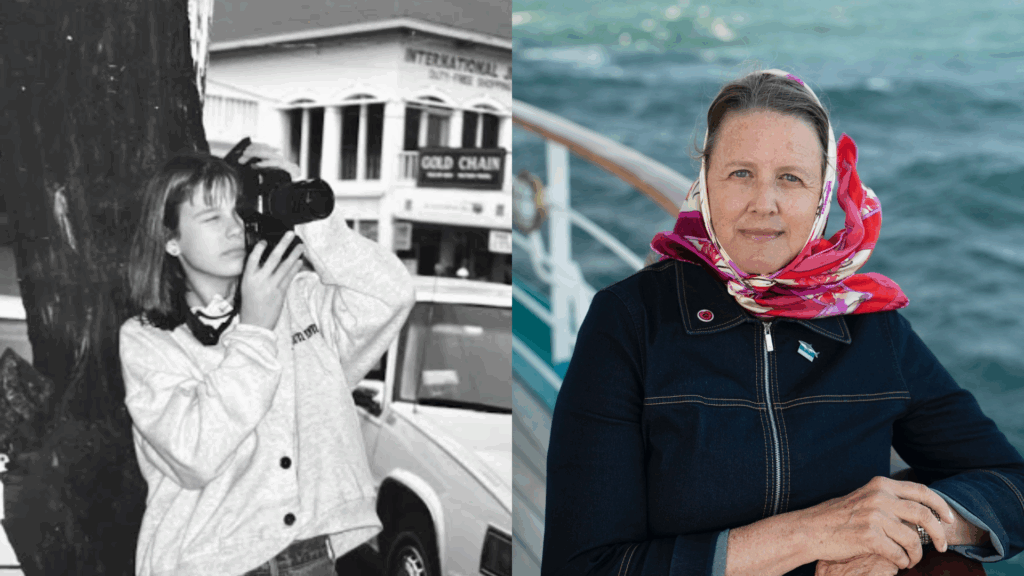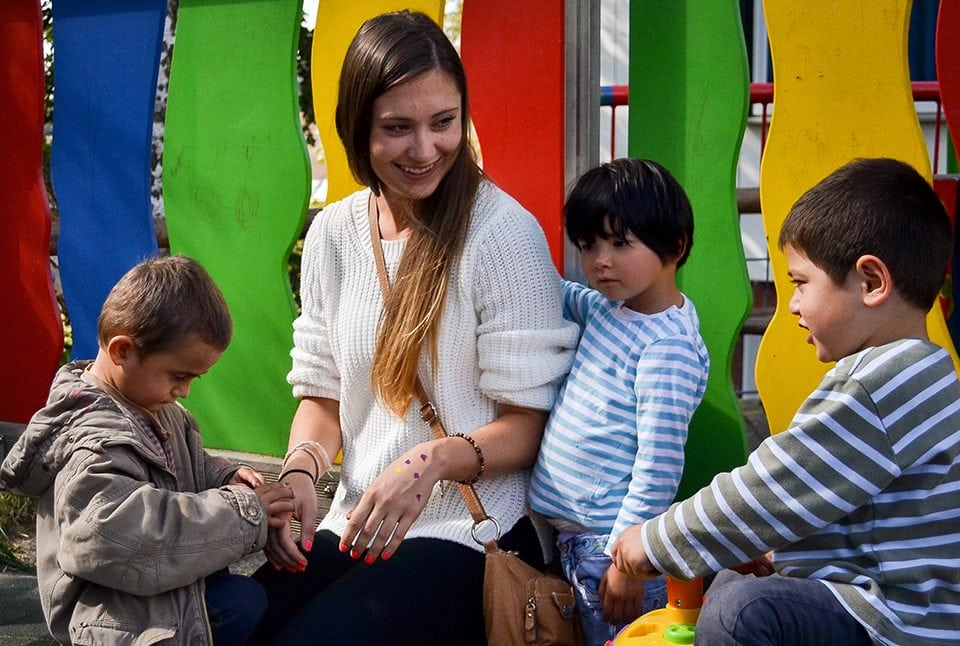
Whenever children from developing nations are brought into more established countries, empathetic individuals want to jump in and help. But consider what version of “help” is best for them. Questions are often asked‚Ķ Can I buy them treats? Would a donation of food or clothing help? Are they up for adoption? Education on the children and their needs is key to knowing what is best for them.
A German non-governmental organization (NGO) called Friedensdorf International or “Peace Village” opened their doors to members of the Fall 2014 voyage with education as their number one priority. The Peace Village’s goal was not only to teach students of their organization’s work but also about their philosophy of treatment and care. Hosting approximately 300 children at any given time, the organization supported 10 African and Middle Eastern countries, including: Angola, Gambia, Nigeria, Palestine, and Uzbekistan. Spread across continents, children came to them with different needs, experiences, and customs. “Everything that is normal for us we have to reconsider and think twice‚ĶThese children have a completely different background,” said Friedensdorf International associate Hanna Lohmann. With many from war-torn nations, even their modest facilities in Germany offered a level of comfort abnormal to them.
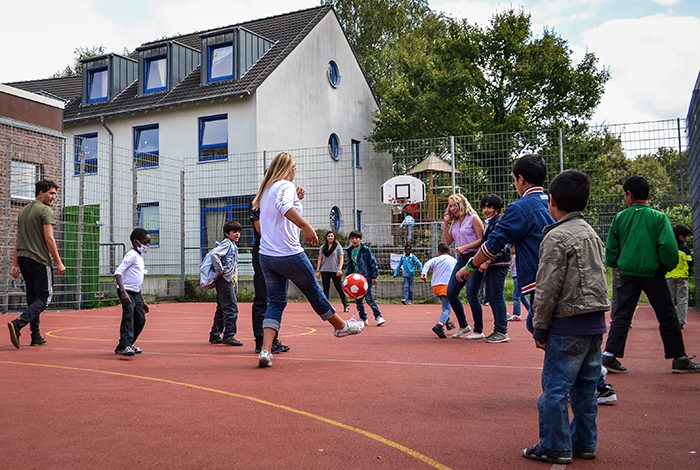
While their children are challenged by a myriad of ailments, bone marrow illnesses were among the most common treated through this NGO. The majority of children on the premises were not orphans. Quite the contrary, many were from loving families that fought for their child’s health and future by advocating they receive the best care. Friedensdorf International served as a medical sponsor for the children and reunited each with their families at the completion of care. To aid in the reintegration process, the NGO did their best to eliminate excessive luxuries that the children would not find at home. With a range of expectations, students entered the playground to meet the children for the first time, cautious of what they might find.
But what they saw was a remarkable combination of strength, energy, and pure joy. These children, who faced challenges both obvious and subtle, created a community of interdependence. “They’re really good at looking out for each other,” observed Laura Singer. Both new and old residents of the village relied on one another to overcome physical and emotional challenges. A relationship of connectivity that many of the shipboard community were recently familiar with, but they were awed nonetheless by this natural bond that transcended race and language barriers. “They’re all on the playground (together). They didn’t see color, race, or ability,” said Jackie Milowe. Their love to play and laugh gave a refreshing feeling of complete normality in the face of incredible difficulties.
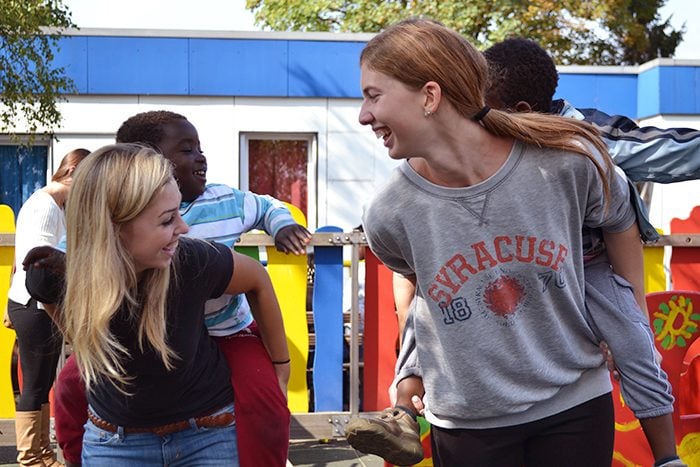
Many moving with assistance of wheelchairs or crutches, they gave no regard to their injuries and embraced every playground obstacles with the same vigor as their Semester at Sea friends. “None of them noticed their physical differences‚ĶThey were just kids,” said Laura Singer. Following an afternoon of crafts, soccer, hugs, and high fives, students wondered what else they could leave behind or how they could give back to these incredible individuals in the future. Lohmann gave the following advice: “Do not bring gifts… Give them your time. The time you spend and the knowledge you give, that they can bring home.”
